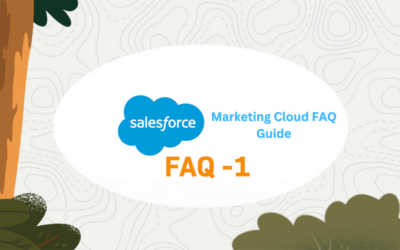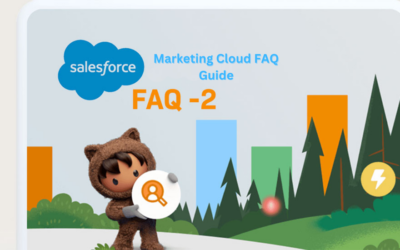Hiring the right Salesforce Service Cloud Consultant or Architect can be a game-changer for your organization. These experts play a pivotal role in ensuring that your Salesforce implementation aligns with your business objectives, boosts efficiency, and enhances customer experiences. However, finding the perfect candidate can be a challenging task.
To assist you in this endeavor, we have compiled a comprehensive list of the top 20 interview questions and detailed answers to evaluate your potential Salesforce Service Cloud Consultant or Architect. These questions are designed to assess the candidate’s knowledge, skills, and experience, helping you make an informed hiring decision. If you need assistance with Salesforce CRM setup and optimization, companies like CRM Force can provide valuable expertise and support.
1- What is Salesforce Service Cloud, and why is it important?
Answer: Salesforce Service Cloud is a customer service and support platform that allows businesses to manage and streamline their customer service operations. It is important because it helps organizations provide exceptional customer service, leading to increased customer satisfaction and loyalty.
2- What are the key components of Salesforce Service Cloud?
Answer: The key components include Cases, Knowledge Base, Service Console, Live Agent, Omni-Channel, and Field Service Lightning.
3- How can you ensure data security in Salesforce?
Answer: Data security in Salesforce can be ensured through the use of profiles, permission sets, and sharing rules. Additionally, you can implement two-factor authentication and IP restrictions.
4- What is the difference between a Standard Object and a Custom Object in Salesforce?
Answer: Standard objects are pre-built by Salesforce (e.g., Account, Contact), while custom objects are created by users to store specific data unique to their organization.
5- What is a Salesforce Lightning Component, and how does it differ from Visualforce?
Answer: Salesforce Lightning Components are user interface frameworks that enable the development of dynamic web apps. Visualforce, on the other hand, is a framework for developing custom user interfaces in Salesforce Classic.
6- What is the case Assignment Rule in Salesforce Service Cloud, and how does it work?
Answer: Case Assignment Rules automatically assign cases to the appropriate support agents based on predefined criteria, such as case type or region.
7- What is Live Agent, and how does it enhance customer support?
Answer: Live Agent is a real-time chat feature in Salesforce Service Cloud that enables immediate customer-agent interaction, improving response times and customer satisfaction.
8- How can Omni-Channel routing benefit a customer service team?
Answer: Omni-channel routing distributes cases to the most suitable agents based on their availability, skills, and workload, ensuring efficient case resolution.
9- What is a Data Loader in Salesforce, and when would you use it?
Answer: Data Loader is a tool for importing, exporting, and deleting data in Salesforce. It is commonly used for data migration and data synchronization tasks.
10- How does Salesforce handle data deduplication?
Answer: Salesforce uses record-matching rules and duplicate rules to identify and prevent the creation of duplicate records.
11- How can you create a custom report in Salesforce, and what are its components?
Answer: Custom reports can be created using the Report Builder in Salesforce. They consist of report type, fields, filters, and grouping.
12- What is the difference between a Tabular Report and a Summary Report in Salesforce?
Answer: Tabular reports display data in rows and columns, while summary reports provide aggregated data with grouping and subtotals.
13- How do you approach user training and adoption in a Salesforce implementation project?
Answer: User training and adoption involve creating a tailored training plan, providing ongoing support, and emphasizing the benefits of Salesforce to encourage user engagement.
14- What strategies can you employ to ensure a successful Salesforce rollout within an organization?
Answer: Strategies may include executive buy-in, clear communication, user feedback incorporation, and a phased rollout approach.
15- How do you communicate technical information to non-technical stakeholders in a Salesforce project?
Answer: Effective communication involves using plain language, visuals, and analogies to make complex technical concepts understandable to non-technical audiences.
16- What is the purpose of a Salesforce Workflow Rule, and how does it differ from a Process Builder?
Answer: A Salesforce Workflow Rule is used to automate standard internal procedures and processes to save time across your org. It’s ideal for simple tasks, whereas Process Builder is more robust, supporting more complex processes with greater flexibility.
17- How you can use Escalation Rules in Salesforce Service Cloud?
Answer: Escalation Rules are used to automatically escalate cases when predefined criteria are met, ensuring that high-priority cases receive prompt attention from support teams.
18- What are Validation Rules in Salesforce, and why are they important in Service Cloud implementations?
Answer: Validation Rules enforce data quality standards by verifying that data entered by users meets certain criteria, helping maintain accurate and reliable customer information.
19- How can you customize Salesforce Service Cloud to match specific business processes and workflows?
Answer: Customization in Salesforce Service Cloud involves creating custom objects, fields, page layouts, and record types to tailor the system to your organization’s unique needs.
20- What is Web-to-Case, and how does it enhance customer support in Salesforce?
Answer: Web-to-Case allows customers to submit support requests via a web form, creating cases in Salesforce directly from your website, improving customer engagement.
Conclusion
In conclusion, the realm of Salesforce Service Cloud is as vast as it is transformative in today’s business landscape. The success of any organization’s customer service and support endeavors hinges greatly upon the expertise of Salesforce Service Cloud Consultants and Architects. These individuals possess the unique ability to harness the full potential of this dynamic platform, aligning it with the specific needs and goals of the organization.
With these questions, hiring managers can delve deep into the core competencies of Salesforce Service Cloud Consultants or Architects, assessing their knowledge of customization, integration, development, and best practices. Armed with this comprehensive toolkit, organizations can confidently select the right professionals who will not only navigate the intricacies of Salesforce Service Cloud but also drive their customer service strategies to new heights of excellence. Whether it’s optimizing workflows, streamlining data migration, or ensuring compliance and security, the expertise of a Salesforce Service Cloud Consultant or Architect is paramount in achieving success in the realm of customer service and support. To learn more about how CRM Force can assist you in recruiting top CRM talent and optimizing your CRM strategies for successful drip campaigns, contact us today. Together, let’s maximize your customer engagement Contact Us today.





